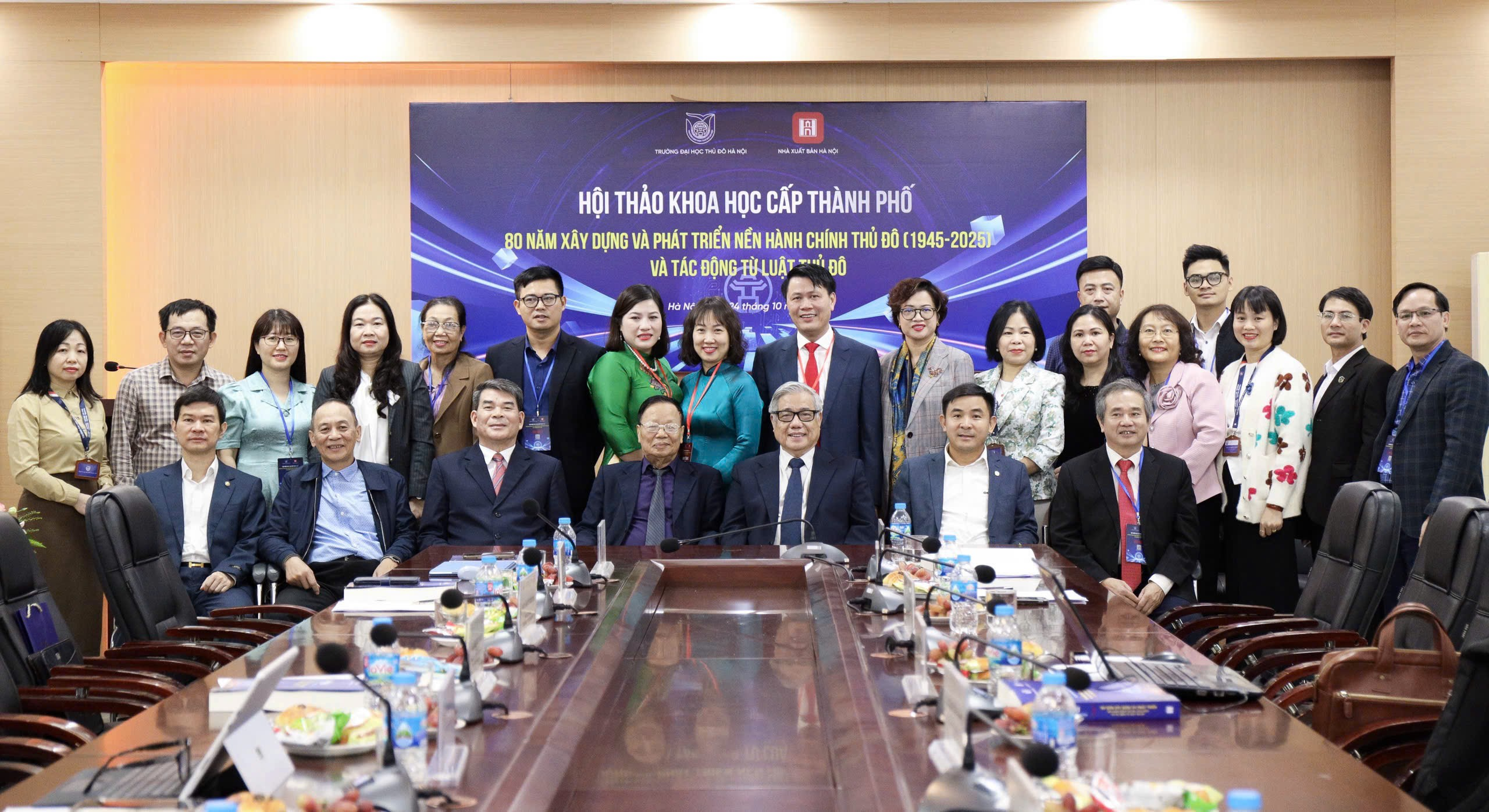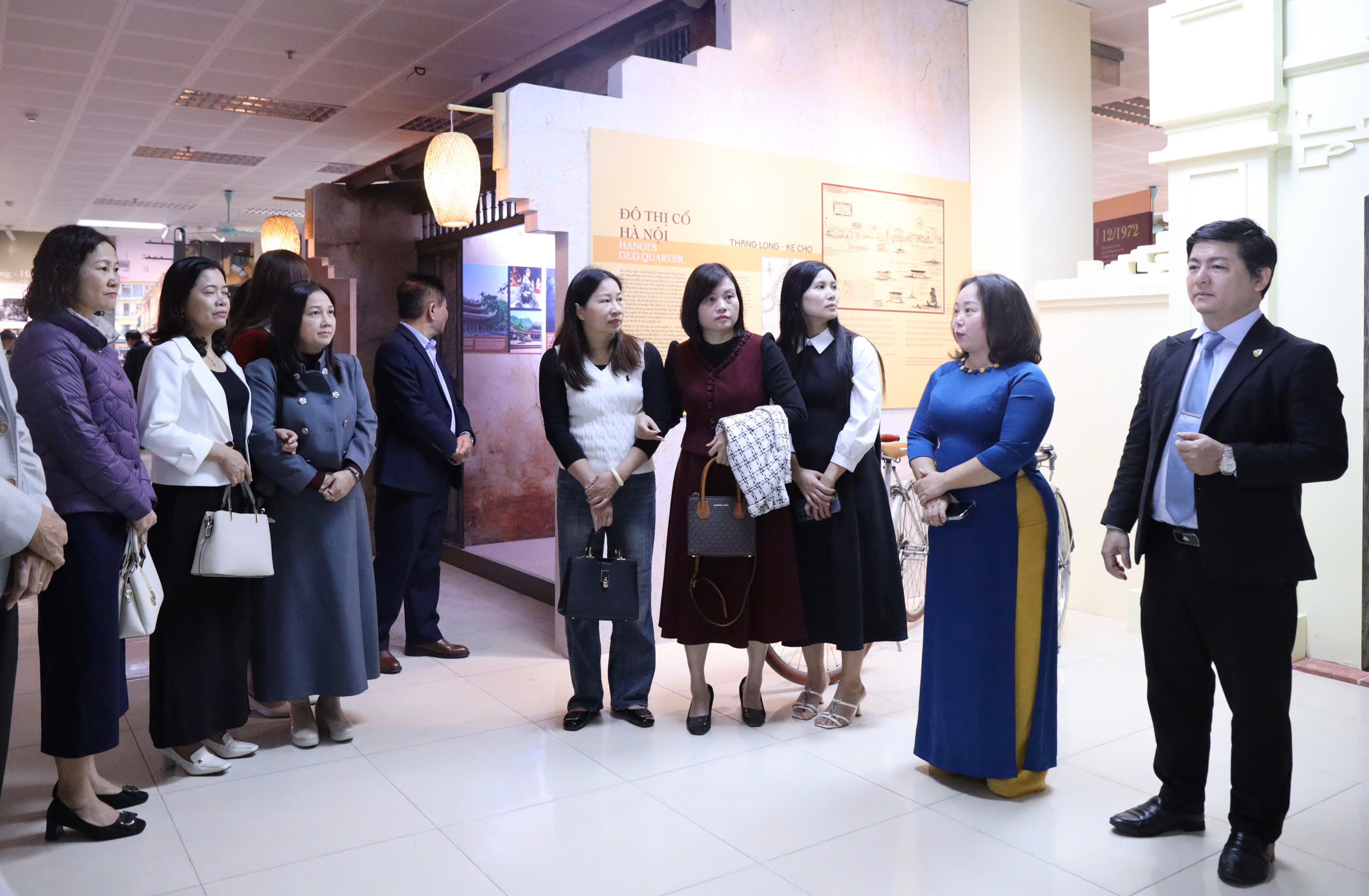Conference: “80 Years of Building and Developing the Capital’s Administrative System (1945–2025) and the Impact of the Capital Law”
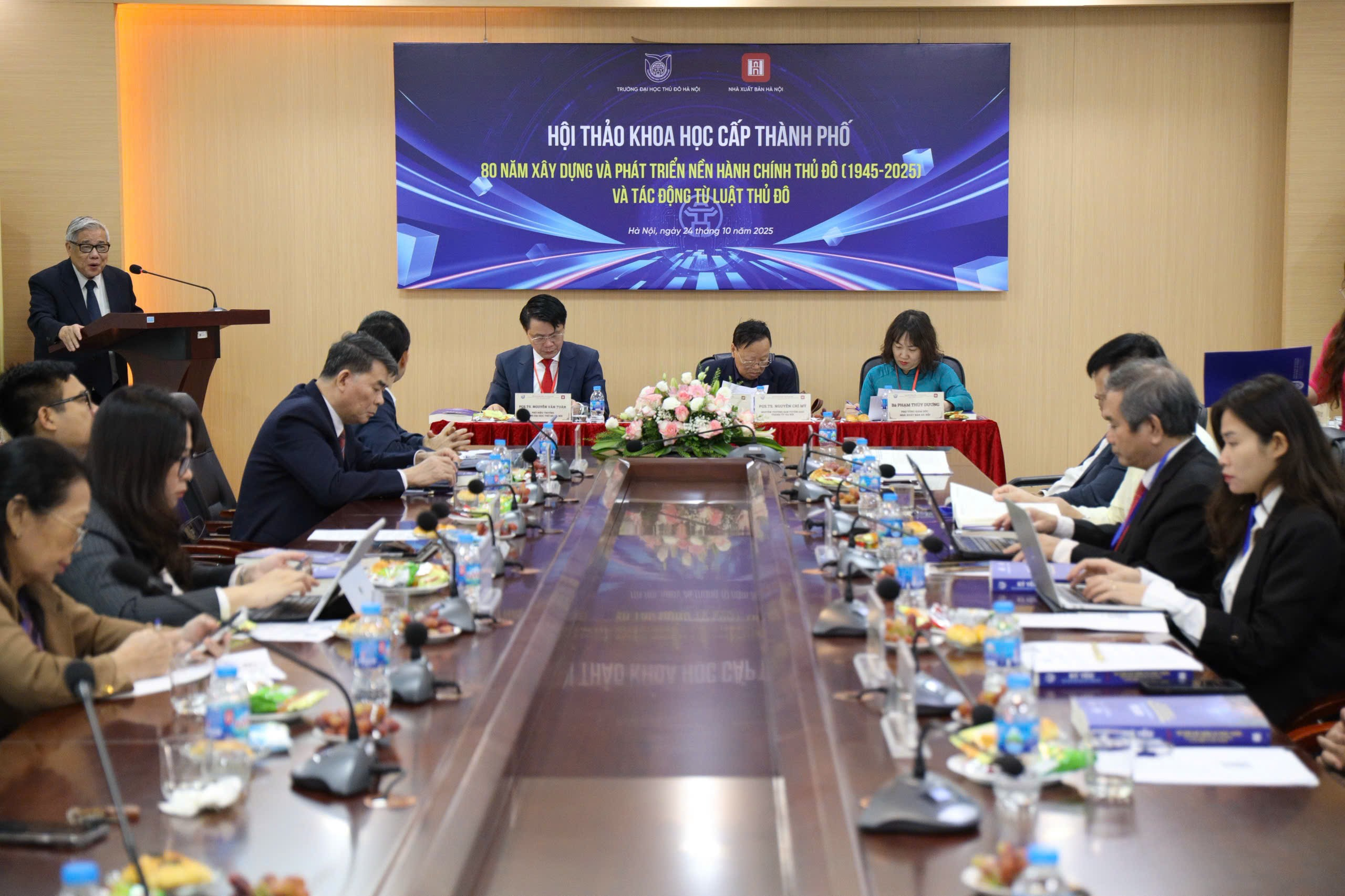
Scientific Conference “80 Years of Building and Developing the Capital’s Administrative System (1945–2025) and the Impact of the Capital Law” The event, co-organized by Hanoi Metropolitan University and the Hanoi Publishing House, aimed to review 80 years of the Capital’s administrative evolution, discuss the implementation of the Capital Law 2024, and explore solutions toward building a modern, effective governance model embodying the spirit of “Civilization – Identity – Creativity.”
On the morning of October 24, at Hanoi Metropolitan University, the City-level Scientific Conference titled “80 Years of Building and Developing the Capital’s Administrative System (1945–2025) and the Impact of the Capital Law” took place. The conference reviewed the formation and development of Hanoi’s administrative system while examining the innovations arising from the newly amended Capital Law (2024), which officially came into effect.
Attending the conference were distinguished scholars, experts, and leaders from various city and central agencies, including Dr. Nguyễn Tiến Dĩnh – Former Deputy Minister of Home Affairs; Assoc. Prof. Dr. Nguyễn Chí Mỳ – Former Head of the Hanoi Party Committee’s Propaganda Department; Prof. Dr. Sci. Vũ Minh Giang – Vietnam National University, Hanoi; Prof. Dr. Phạm Hồng Tung – Vietnam National University, Hanoi; Dr. Phạm Đức Anh – Director of the Institute of Vietnamese Studies and Development Sciences; Mr. Lê Tiến Dũng – Former General Director of Hanoi Publishing House, along with representatives from the organizing units and related departments.
Representing the organizing units were Ms. Phạm Thuỳ Dương – Deputy General Director of Hanoi Publishing House, Assoc. Prof. Dr. Nguyễn Anh Tuấn – Chairman of the University Council of Hanoi Metropolitan University, and Assoc. Prof. Dr. Nguyễn Văn Tuân – Vice Rector, along with university leaders, faculty, staff, and students.
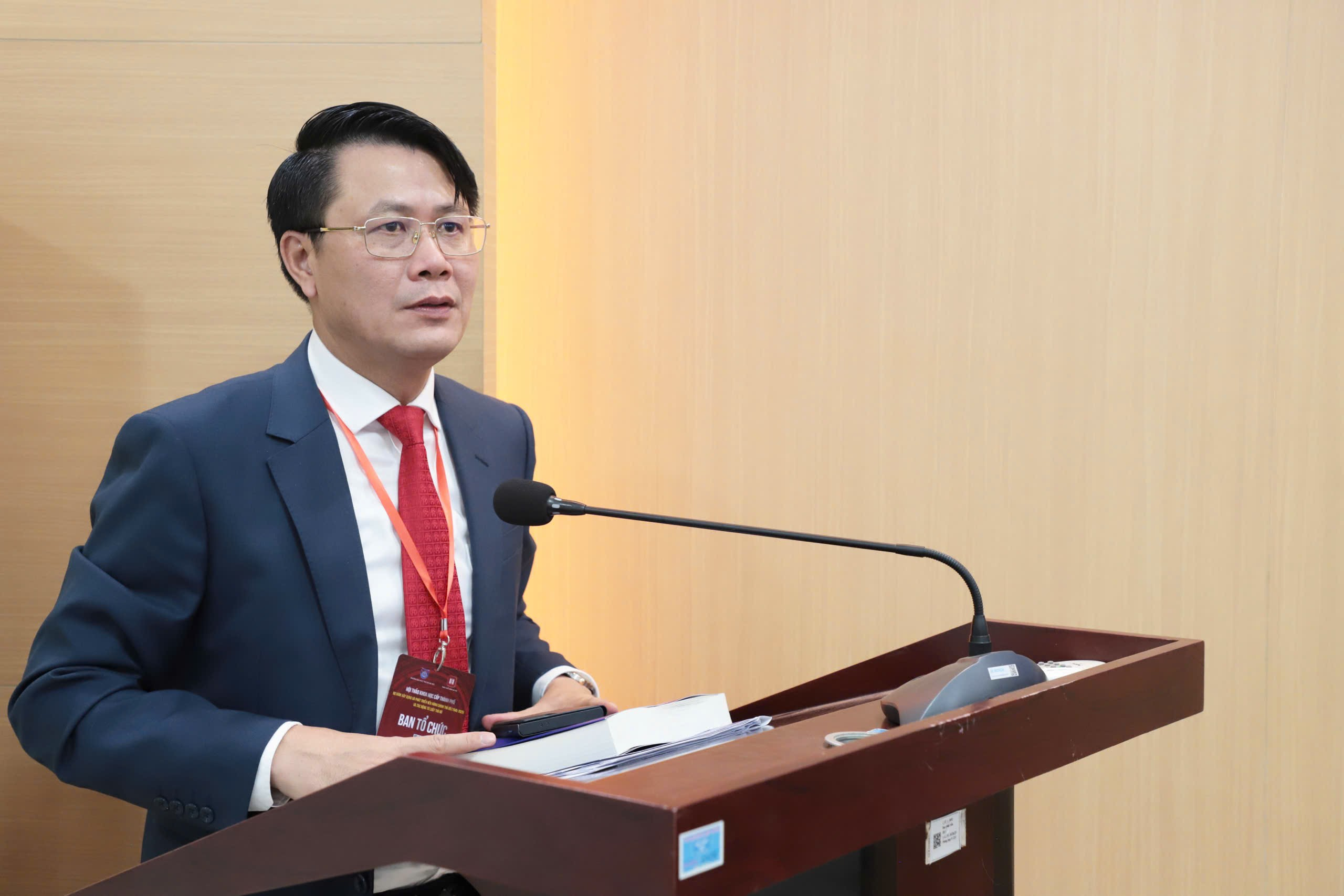
Assoc. Prof. Dr. Nguyễn Văn Tuân, Vice Rector of Hanoi Metropolitan University, emphasized the special significance of the conference
Assoc. Prof. Dr. Nguyễn Văn Tuân, Vice Rector of Hanoi Metropolitan University, emphasized the special significance of the conference in light of the 2024 Capital Law, recently approved by the National Assembly. He noted that this milestone marks an important step in institutional reform and decentralization, granting Hanoi a distinctive mechanism for sustainable development. The conference, he said, was an opportunity to reflect on 80 years of administrative evolution, recognizing achievements, challenges, and valuable lessons while discussing pathways toward a modern, efficient, and citizen-centered administrative system integrated with digital transformation. He highlighted that the 2024 Capital Law provides a new legal framework for Hanoi’s governance, fostering positive changes in public administration and citizen satisfaction. According to UNDP’s 2022 survey, public satisfaction with online administrative services in Hanoi increased by 20% compared to 2018.
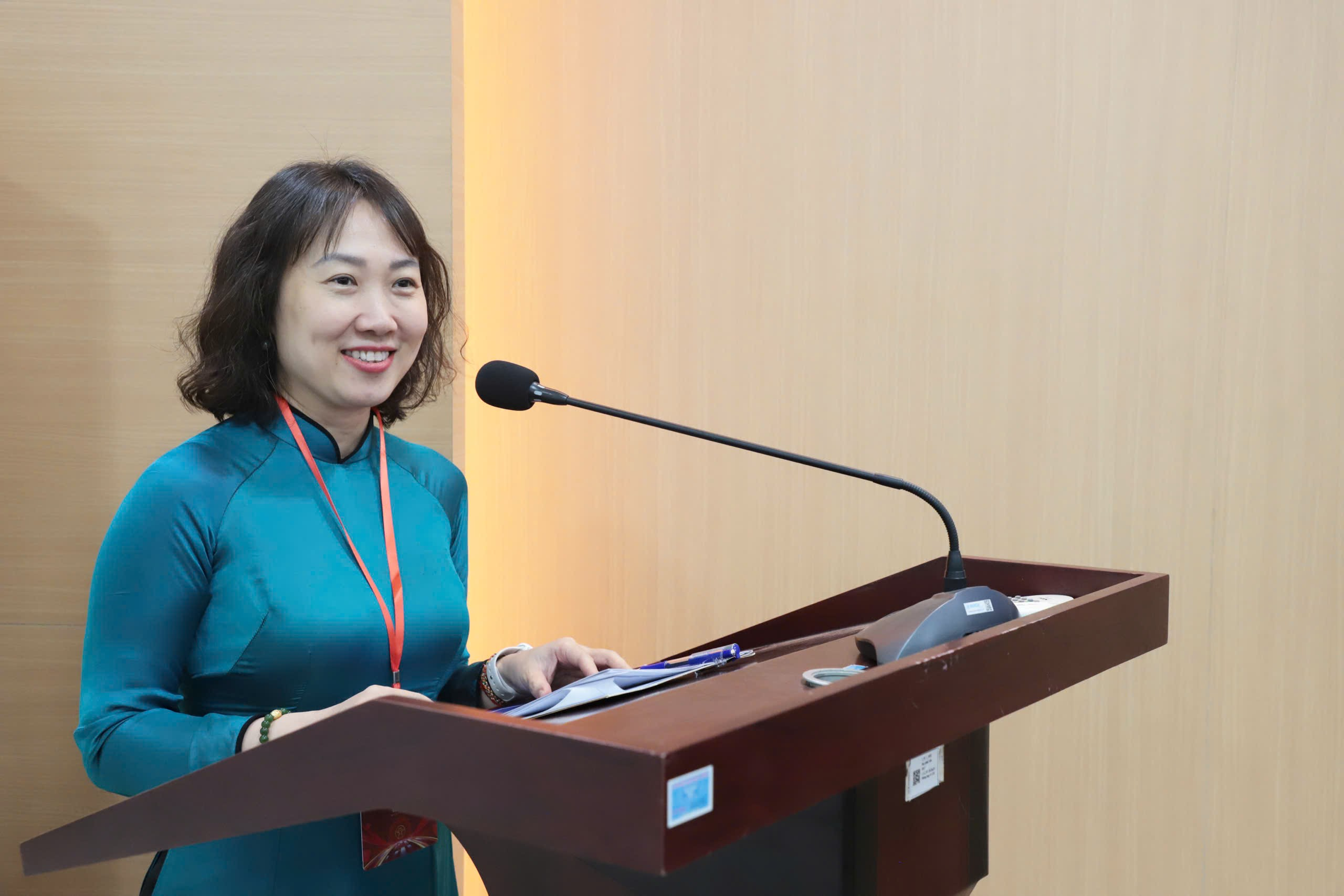
Ms. Phạm Thuỳ Dương, Deputy General Director of Hanoi Publishing House, delivered the opening address, setting the tone for the discussion.
Dr. Nguyễn Tiến Dĩnh, Former Deputy Minister of Home Affairs, discussed strategies for developing a capable and ethical civil service workforce, emphasizing the need to build a model of “creative and service-oriented public officials.” He stressed digital competency, modern management thinking, and adaptability as essential skills for the new era, alongside transparent recruitment, professional development, and accountability mechanisms.
Assoc. Prof. Dr. Nguyễn Chí Mỳ, Former Head of the Propaganda Department of the Hanoi Party Committee, shared insights on the city’s administrative reform efforts. He analyzed how Hanoi’s authorities have streamlined institutions, applied digital governance, and pioneered e-government and smart city administration, enhancing transparency and public trust.
Prof. Dr. Phạm Hồng Tung (Vietnam National University, Hanoi) presented on “Historical Lessons and Talent Attraction for Sustainable Development of the Capital and the Nation.” He emphasized that Thăng Long – Hanoi has always been a center for talent throughout history, and in the modern era, the city must continue to cultivate an ecosystem that connects government, universities, and the private sector to attract and retain skilled professionals.
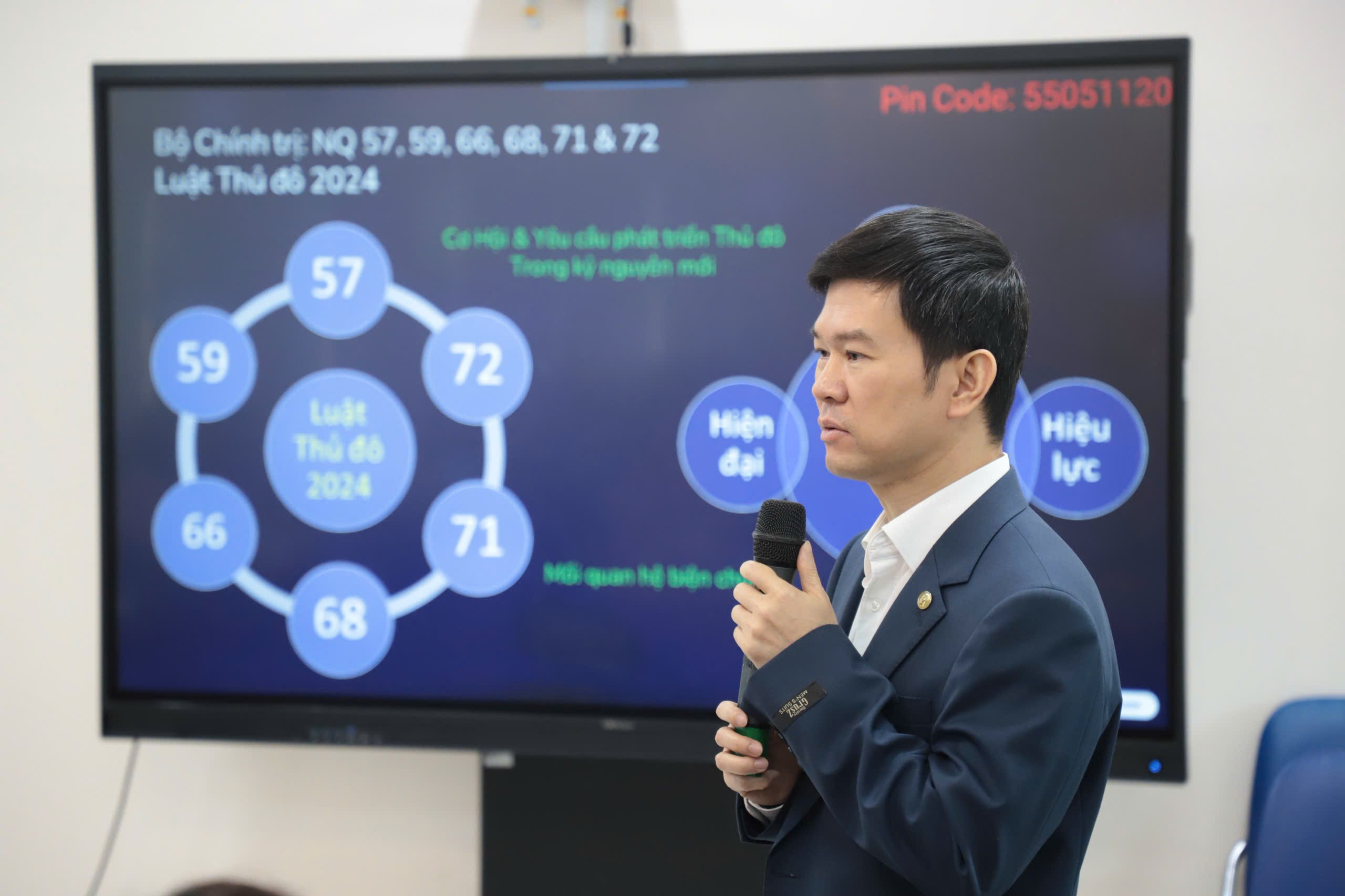
From the perspective of education and modern governance, Assoc. Prof. Dr. Nguyễn Anh Tuấn, Chairman of the University Council, presented on “Requirements and Solutions for Building a Modern, Effective, and Culturally Distinct Capital Administration in the Era of National Renaissance.” He highlighted new governance challenges in the digital age, stressing the importance of citizen-centered administration, the development of smart governance models, and the integration of digital technologies in public management. He also underscored the need to strengthen leadership capacity, accountability, and uphold the cultural identity of Thăng Long – Hanoi within the city’s administrative modernization process.
Delegates discussed multiple key issues, providing valuable scientific insights for policymaking and human resource development in public administration. These discussions will contribute to the effective implementation of the 2024 Capital Law in practice. The conference reaffirmed Hanoi Metropolitan University’s pioneering role in research, education, and policy consultation for the Capital. With the vision of being “The University of the Capital – A Hub of Knowledge, Identity, and Creativity,” the University remains committed to accompanying Hanoi in building a modern, civilized, and people-centered administrative system for the sustainable future of the Capital.
